

HOLOS GLOBAL SYSTEM. Being in itself is the force.
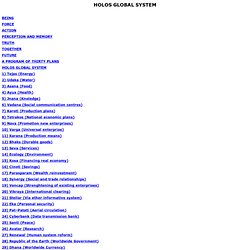
The action of being is the manifestation of its force. The force depends on the form while the aim of the action is an even greater force. Action in itself liberates the force. Every reactive action provokes other actions. What’s more every reactive action in itself liberates force. The action can be directed externally or internally of the being. The action that is directed internally causes a decomposition of the being that carries it out. The action directed externally results in disintegration or aggregation. Disintegration occurs when the action provokes contrast between the behaviour of the parts and the rules that hold them together. Aggregation occurs when the act proposes a new rule that encourages the parts to adopt suitable behaviour to improve relationships. Energy (esotericism) Aether (classical element) According to ancient and medieval science, aether (Greek: αἰθήρ aithēr[1]), also spelled æther or ether, also called quintessence, is the material that fills the region of the universe above the terrestrial sphere.
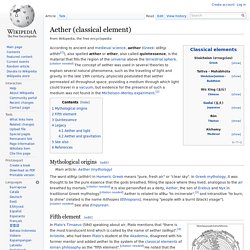
[citation needed] The concept of aether was used in several theories to explain several natural phenomena, such as the traveling of light and gravity. In the late 19th century, physicists postulated that aether permeated all throughout space, providing a medium through which light could travel in a vacuum, but evidence for the presence of such a medium was not found in the Michelson–Morley experiment.[2] Medieval concept of the cosmos. The innermost spheres are the terrestrial spheres, while the outer are made of aether and contain the celestial bodies. Chakra.
From an 1899 Yoga manuscript in the Braj Bhasa language.
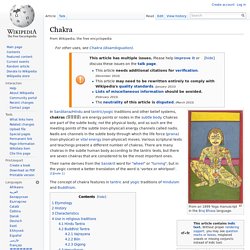
Their name derives from the Sanskrit word for "wheel" or "turning", but in the yogic context a better translation of the word is 'vortex or whirlpool'.[1][note 1] The concept of chakra features in tantric and yogic traditions of Hinduism and Buddhism. Etymology[edit] Sanskrit chakra derives from the Proto-Indo-European *kʷekʷlos; its cognates include Greek kuklos, Lithuanian kaklas, Tocharian B kokale, and English "wheel," as well as "circle" and "cycle".[2] M. Aura (paranormal) The Human Aura in a healthy woman after a diagram by Walter John Kilner (1847-1920).
Alchemy. The Emerald Tablet, a key text of Western Alchemy, in a 17th-century edition.
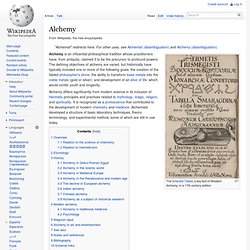
Alchimie. Four Elements Presentation (Master’s Defense) — It's Elemental. The following presentation was made literally thirty minutes before my Master’s thesis defense, when I thought to myself, hey, I should put together some slides!
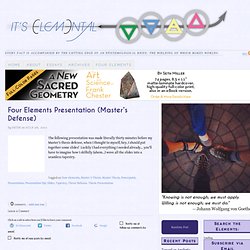
Luckily I had everything I needed already… you’ll have to imagine how I skilfully (ahem…) wove all the slides into a seamless tapestry. Tagged as: four elements, Master S Thesis, Master Thesis, Powerpoint, Presentation, Presentation Ppt, Slides, Tapestry, Thesis Defense, Thesis Presentation. Métaphysique (Aristote) Un article de Wikipédia, l'encyclopédie libre.
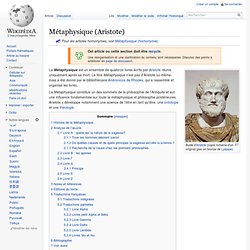
One Hundred Interesting Mathematical Calculations, Number 7: Archive Entry From Brad DeLong's Webjournal. One Hundred Interesting Mathematical Calculations, Number 7 One Hundred Interesting Mathematical Calculations, Number 7: Julius Caesar's Last Breath. Top five regrets of the dying. There was no mention of more sex or bungee jumps.

A palliative nurse who has counselled the dying in their last days has revealed the most common regrets we have at the end of our lives. Innocence. Golden Rules for Living. Emerald Tablet. An imaginative 17th century depiction of the Emerald Tablet from the work of Heinrich Khunrath, 1606.
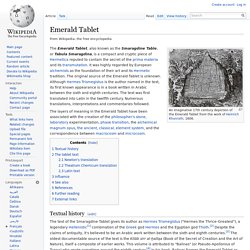
The Emerald Tablet, also known as the Smaragdine Table, or Tabula Smaragdina, is a compact and cryptic piece of Hermetica reputed to contain the secret of the prima materia and its transmutation. It was highly regarded by European alchemists as the foundation of their art and its Hermetic tradition. The original source of the Emerald Tablet is unknown. Although Hermes Trismegistus is the author named in the text, its first known appearance is in a book written in Arabic between the sixth and eighth centuries. The text was first translated into Latin in the twelfth century. Textual history[edit] The tablet text[edit] Esprit. Représentation des facultés de l'esprit humain.
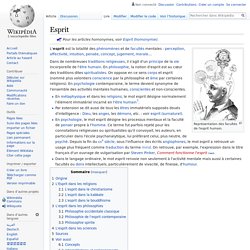
Inner Worlds, Outer Worlds Movie. Théorie du grand homme. Un article de Wikipédia, l'encyclopédie libre.
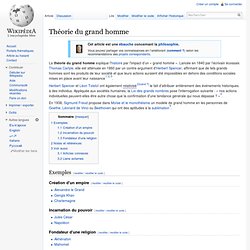
Greatness. Greatness is a concept of a state of superiority affecting a person, object. Greatness can also be referred to individuals who possess a natural ability to be better than all others. Character Strengths and Virtues (book) The strengths and virtues[edit] CSV defined character strengths as satisfying most of the ten following criteria.
Sophrosyne. Sophrosyne (Greek: σωφροσύνη) is a Greek philosophical term etymologically meaning healthy-mindedness and from there self-control or moderation guided by knowledge and balance. Roman poet Juvenal later interpreted sophrosyne as "mens sana in corpore sano" ("a healthy mind in a healthy body"). In ancient Greek philosophy[edit] Sophrosyne was a Greek goddess. She was the spirit of moderation, self-control, temperance, restraint, and discretion. Surhomme. Intuition (knowledge) Intuition is the ability to acquire knowledge without inference or the use of reason.[1] The word intuition comes from Latin verb intueri which is usually translated as to look inside or to contemplate.[2] Intuition is thus often conceived as a kind of inner perception, sometimes regarded as real lucidity or understanding.
Cases of intuition are of a great diversity, however processes by which they happen typically remain mostly unknown to the thinker, as opposed to our view of rational thinking. Intuition provides views, understandings, judgements, or beliefs that we cannot in every case empirically verify or rationally justify.
Insight. Un article de Wikipédia, l'encyclopédie libre. En psychologie, l’insight[1] est la découverte soudaine de la solution à un problème sans passer par une série d'essais-erreurs progressifs. Intuition. Un article de Wikipédia, l'encyclopédie libre. Définition[modifier | modifier le code] Common sense. Common sense is a basic ability to perceive, understand, and judge things, which is shared by ("common to") nearly all people, and can be reasonably expected of nearly all people without any need for debate.[1] The everyday understanding of what common sense is derives from philosophical discussion, involving several European languages.
Related terms in other languages include Latin sensus communis, Greek κοινὴ αἲσθησις (koinē aísthēsis), and French bon sens, but these are not straightforward translations in all contexts. Similarly in English, there are different shades of meaning, implying more or less education and wisdom: "good sense" is sometimes seen as equivalent to "common sense", and sometimes not.[2] "Common sense" has at least two specifically philosophical meanings. Aristotle, who is the first person known to have discussed "common sense". Aristotelian common sense[edit] Sens commun. Un article de Wikipédia, l'encyclopédie libre. À l'origine, le « sensus communis »[modifier | modifier le code] La notion de « sens commun » descend de son ancêtre latin « Sensus communis », présent dans l'Antiquité mais avec une signification différente de celle que nous lui connaissons aujourd'hui. Aristote[1] a d'abord formulé dans le traité de sensu et sensibilibus une réflexion sur la perception (aisthesis), dans le sens de sensibilités communes (koinè aisthesis).
Dans la métaphysique de la psychologie, le sens communest une faculté que l'on est obligé de postuler pour rendre compte de la synthèse par notre conscience des sensations issues de nos différents sens. Autrement dit, le sens commun est le sens qui permet la synthèse des données attribuables aux différents organes sensoriels ((réf. Philosophy of happiness. Greek philosophers (Socrates, Antisthenes, Chrysippus, Epicurus).
Culpabilité (psychanalyse) Un article de Wikipédia, l'encyclopédie libre. Le sentiment de culpabilité ou culpabilité est une émotion relative à soi et/ou au groupe social (dont la famille) qui repose sur le sentiment — justifié ou non — qu’on porte une responsabilité personnelle dans un événement fâcheux. Il se manifeste souvent par de l’angoisse et/ou une dépression et est fréquent lors d’un deuil comme l’a souligné Sigmund Freud[style à revoir]. En allemand le même signifiant « Schuld » désigne à la fois la dette et la culpabilité[réf. souhaitée]. Guilt. Tolérance religieuse. Paranoia. Psychose. Névrose. Integrity. Arousal. Egolessness.
Honneur. Loyauté. Eso... Théorie aristotélicienne de la causalité. Causality. Four causes. Histoire de l'islamisme. Twilight of the Idols - Books - Review. Metta Sutta. Misanthropy. Processing - Please Wait. Islamisme. Catholicisme traditionaliste. 7 (nombre) 3 (nombre) Documentaire - Fascinant Chiffre 7 (FR) Pseudologia fantastica.